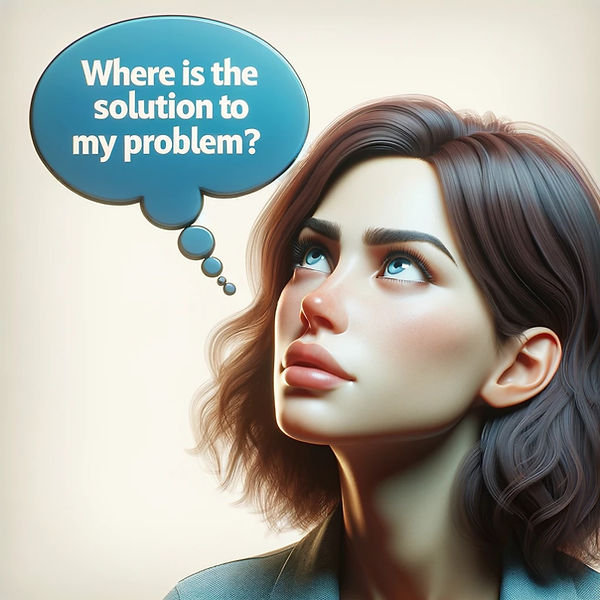AskDwightHow.org 365/24/7
14m 24s
Welcome to...
Start exploring the treasures you'll find in every one
of the 1262 plus different rooms in this Guest House.


We'll get your problem solved one way or the other. Open this door
Beware of those (including yourself) whose kindness and generosity is motivated by an expectation that it will be returned in kind by you.
in basing their generosity on this expectation, they are risking that they will feel betrayed by you.
Am I lucky or unlucky?
If I look for how I am unlucky in my life, I can find it
If I look for how I am lucky in my life, I can find it.
Since I always look for how I am lucky, I never notice if I am unlucky.
Today, much more than decades ago, the real expect is not so much one who knows the most answers or the one who can quickly take the steps to get the results. It is the one who knows how and where to find the answers or knows the process by which the results are likely to occur.
The expert of today keeps less "end knowledge" in his or her head and relies more on their ability to find the answers when needed.
Which of these two types of transactions contribute more to the world?
Transaction type #1: two parties exchange goods, services, and/or money because each party decides they will be better off after the exchange than before. This type of transaction is called trade or commercialism.
Transaction type #2: one party gives goods, services, and/or money to another party without receiving anything in return (except perhaps "thanks" or good will or having a good reputation for being generous, or getting to avoid others thinking they are miserly). This type of transaction is called charity or philanthropy.
The first type of transaction (trade) is sustainable, since each side is made richer by the transaction. The second type of transaction (charity) is ultimately unsustainable, since the giver's resources are depleted for every transaction engaged.
Trade is competitive. As such, it tends towards better services and products and towards lower prices. Charity is non-competitive (except for a charitable organization's competition to attract donors). Therefore, there is little push for less expensive and higher quality services and products.
Trade tends towards creating a sense of empowerment for all the parties and people involved: "What I provide is valuable enough for others to pay for or to give me services or products for." Charity can create a sense of empowerment for the giver: "I am so powerful that I can afford to make a difference in the lives of others this way." However, it can be dis-empowering for the receivers: "Yes, I need this or can use this. But I didn't earn it. And, why should I make the effort to earn it in the future since I can get it easier this way?"
Both trade and charity have their place in a free society.
However, I have always been puzzled by the disdain and suspicion many (especially "intellectuals" and many artiists) have for trade and commercialism. Most often, the villains in movies and TV series are the "money-grubbing businessmen." Businesses and business people are often dishonored and criticized because they profited by their ability to provide goods and services in a competitive society where each individual that traded with them decided they would be better off after the transaction.
In contrast, we glorify and praise the alms givers, those who sacrifice their own benefit, and the Mother Teresa's of our world.
Yes, we need both types of transactions in this world. But let's be clear that, whenever possible, the first type (trade) should be used and encouraged whenever possible. It is the type of transaction we should honor first and foremost. One dramatic example: charity did not raise over a billion Chinese out of abject poverty and starvation. A dramatic shift in the Chinese government (spearheaded by Deng Xiaoping) that sanctioned relatively free trade to arise, allowed the Chinese people and Chinese businesses (in a competitive market) to accomplish ever-increasing prosperity through trade.
I love my job as a life coach so much that whenever I am watching a movie or TV drama, I find myself automatically coaching the protagonists so that they would have better relationships with each other.
I know, however, if the drama was written with the characters listening to my coaching, then it would not be a drama any more and no one would want to watch it.
We love watching dramas where the characters are always getting into trouble.
I love my job as a life coach so much that whenever I am watching a movie or TV drama, I find myself automatically coaching the protagonists so that they would have better relationships with each other.
I know, however, if the drama was written with the characters listening to my coaching, then it would not be a drama any more and no one would want to watch it.
We love watching dramas where the characters are always getting into trouble.
You have all the time in the world to be happy, if you're being happy now.
“Are you busy?”
Whenever I'm asked this question, my reply is honestly, "I am leisurely busy."
This is because I put as a #1 priority my lifestyle and enjoying the dance of the journey. I put results as a second priority. Most people do the opposite and "enjoying the process" might not even take second place.
The quality of the present moment completely rewrites your life history.
If you're basking in ecstasy and you think back over your life, you will have no regrets and you will feel everything miraculously lead you to this perfect point.
If you're super depressed and you think back over your life, even your happiest earlier moments and experiences will occur as nothing and meaningless.







